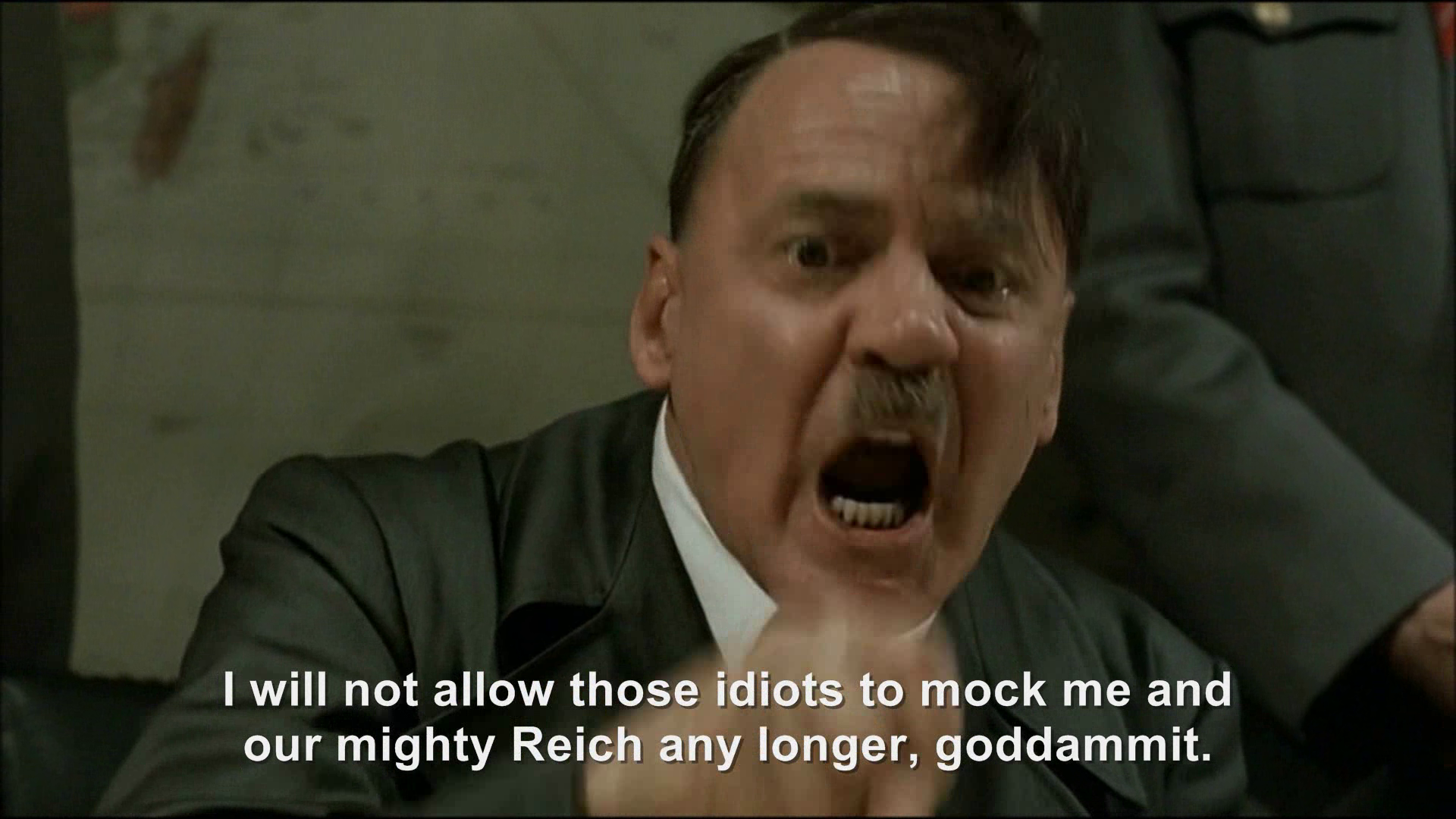To spark discussion, the Walker invites local artists and critics to write overnight reviews of our performances. The ongoing Re:View series shares a diverse array of independent voices and opinions; it doesn’t reflect the views or opinions of the Walker or its curators. Today, Andy Sturdevant, host and creative director of Salon Saloon, shares his perspective on Thursday night’s Ganesh Versus the Third Reich by Back to Back Theatre. Agree or disagree? Feel free to share your thoughts in comments!
In a 2010 interview, director Oliver Hirschbiegel was asked about the many, many Internet video parodies of a scene from his 2004 film Downfall, where an increasingly crazed Adolf Hitler (Bruno Ganz) appears to be ranting to his staff about everything from Twitter outages to Sarah Palin to Kanye West. Hirschbiegel said this of these appropriations: “The point of the film was to kick these terrible people off the throne that made them demons, making them real and their actions into reality. I think it’s only fair if now it’s taken as part of our history, and used for whatever purposes people like.”
Bruno Ganz’s performance is referenced in Back to Back Theatre’s production Ganesh Versus the Third Reich, as is Charlie Chaplin’s performance in his film The Great Dictator. As masterful as both cinematic performances are in their own ways, both are also, as Paul Schmelzer puts it in his great interview with Back to Back artistic director Bruce Gladwin in the Walker magazine, an “embarrassingly extreme reduction of the evil of Hitler.” By definition, a symbol, no matter how powerful, can never encapsulate the full range of the experiences it represents. Hirschbiegel has said that in his film, he sought to portray Hitler in a more three-dimensional way, as a broken, pathetic human, and therefore robbing him of his symbolic power. It’s the frothing, pathetic quality of Ganz’s performance in the film, though, that makes the Downfall clip such an attractive target for parodists and meme artists. Who gets the right to use a symbol, and to what ends? Symbols are, in the end, about power.

It’s those questions of power that animate Ganesh Versus the Third Reich more than any other idea. Only a small part of the play, really, is about how the power of a symbol can be used, co-opted or reclaimed. The larger question is about who has the power to use, co-opt or reclaim symbols, and what can be done with that power.
As you know already if you’ve read about the show, it depicts a fictionalized version of the Back to Back company writing and rehearsing a show about Ganesh traveling through time and space to Nazi Germany to reclaim the swastika from Hitler. The theater company are not Jewish or Hindu — they’re white Australians. Four of the five of the actors, though, are “perceived to have intellectual disabilities,” in the words of the company.
The production process they take us through, of course, is fraught with these questions of whether or not creating such a show is good art, but if it’s even appropriate or ethical. On top of this are larger questions of power dynamics within the group. The director David, played by Luke Ryan, has that smarmy, condescending quality that certain influential members of the creative community sometimes have, and over the course of the show, his creative clashes with the rest of the cast take on a shockingly brutal quality. And the abuse is not a one-way street; the members of the cast can be incredibly cruel to one another. At one point, the show’s writer and its Ganesh (Brian Tilley) off-handedly castigates some of the other members for their speech impediments. It’s not easy to watch.
The show asks a lot. Sometimes literally: viewing the audience and addressing what is, in the production, the empty seats of the theater where the rehearsal takes place, David asks the unseen audience if they’re perverts, there to see a “freak show.” The woman in front of me actually spoke out loud, in a way that suggested she was shaken by this accusation, a soft but resounding “No!” Questions of exploitation, privilege, co-option and power are weighty ones.
It’s a tough show, but a very rewarding one. At the end, the outpouring of love and admiration from the crowd was matched only by the enthusiasm of the actors onstage. It felt like we’d all been through a quite a journey together. There is a great power, too, in theater, and it’s a power Back to Back wields masterfully.
Get Walker Reader in your inbox. Sign up to receive first word about our original videos, commissioned essays, curatorial perspectives, and artist interviews.

)
)